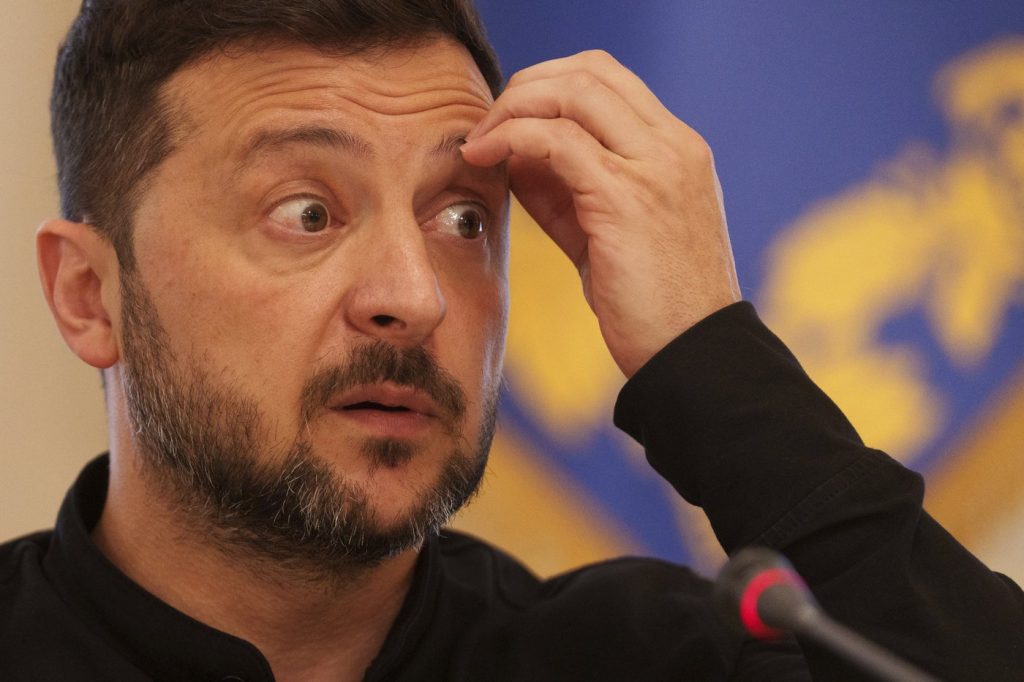KYIV, Ukraine — A spike in global oil prices post-Israeli strikes on Iran will reinforce Russia's military capabilities in Ukraine, Ukrainian President Volodymyr Zelenskyy expressed on Friday. He stated that this rise in oil prices poses a threat to Ukraine's battlefield position, particularly as Western allies have not implemented effective price caps on Russian oil exports. Zelenskyy's comments, initially under embargo until Saturday, underscored the challenges Ukraine faces amid rising energy costs.
Following recent attacks between Israel and Iran, global oil prices surged as much as 7%, raising concerns about potential disruptions to oil exports from the Middle East. Zelenskyy highlighted that greater revenues from oil exports would enable Russia to bolster its military strength in the ongoing conflict. “The strikes led to a sharp increase in the price of oil, which is negative for us,” he said, emphasizing the detrimental impact on Ukraine's defense resources.
Amid these developments, Zelenskyy revealed plans to discuss the implications of rising oil prices in his forthcoming conversation with U.S. President Donald Trump. He expressed a desire for ongoing military support for Ukraine, fearing that tensions in the Middle East might divert U.S. assistance away from Ukraine. “We would like aid to Ukraine not to decrease because of this,” he stated, recalling previous instances where aid was delayed.
Zelenskyy expressed concern over U.S. military aid being redirected, citing a recent shipment of 20,000 interceptor missiles initially earmarked for Ukraine that were sent to Israel instead. “This was a blow for us,” he remarked, explaining that with threats of 300 to 400 drones daily, the interception capability was crucial for Ukraine's defense. Additionally, he criticized the delayed transfer of the Barak-8 air defense system, promised by Israeli President Benjamin Netanyahu but never delivered to Ukraine.
Moreover, Zelenskyy indicated that the momentum for the Coalition of the Willing, an alliance of 31 countries committed to supporting Ukraine against Russian aggression, has slowed due to U.S. hesitance. He argued that Europe needs to solidify its commitment to Ukraine independent of American involvement, noting the significance of U.S. backing for the coalition's reassurance efforts.
“This situation has shown that Europe has not yet decided if it will fully support Ukraine in the absence of America,” Zelenskyy observed, adding that the presence of foreign troops would provide security guarantees, allowing Ukraine to contemplate territorial compromises in negotiations with Russia. He articulated this connection for the first time, suggesting that foreign military presence might facilitate concessions in ongoing disputes.
As international dynamics evolve, Zelenskyy underscored the importance of tight U.S. sanctions against Russia, stating, “Without them, it will be very difficult for us.” He noted that increased military assistance from Europe would be crucial if U.S. support diminishes during the ongoing conflict.
In related developments, Russia announced the repatriation of fallen soldiers as part of a recent agreement with Ukraine, which was executed during peace talks in Istanbul. According to Russian state media, Ukraine did not return any bodies during this exchange, although Ukraine confirmed the return of 1,200 deceased soldiers. Both nations also participated in a transfer of severely wounded servicemen, though exact figures were not publicly disclosed.
In further military updates, Russia claimed to have captured a village in the Donetsk region amidst a continuous push along the eastern front. Ukrainian air defense reported shooting down a significant number of Russian drones, although civilian casualties were also reported, including a fatal attack in the Kherson region.
Despite talks of a potential ceasefire, hostilities continued as diverging conditions between Ukrainian and Russian memorandums highlight the challenges in reaching a swift agreement. The complexity of the situation underscores ongoing tensions and the necessity for continued international engagement in the region.










